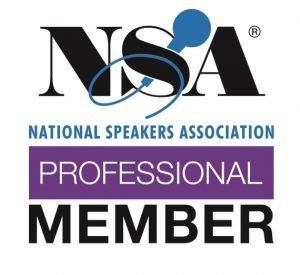People seem to be under more stress than ever these days. As if the normal stressors of work and family aren’t enough, the on-going poor economic situation makes it worse. Since increased stress can lead to increased absenteeism, health problems, and inattention to the job with resulting accidents and injuries, leaders must make managing stress in the workplace a priority.
What can you do as a leader to help reduce your employee’s stress? First, understand that employees come to work with at least some stress which you can do nothing about. There will always be at least some concerns in their personal lives. While you can’t affect their personal stressors, you can probably reduce workplace stress. Of course some jobs have more of that than others. In fact there will always be at least some, low level stress associated with work. This will vary from person to person based on the type of work, their experience level, and their own psychological makeup. But are you adding to that? Here are a few factors that are probably increasing your workers levels of stress.
- Job uncertainty. I’ve seen companies that use the pink slip as the solution to all problems. Even the most minor infractions can lead to dismissal. Employees fear for their jobs which can quickly drive up the stress level.
- The bad boss. Some leaders cause worker stress, often by becoming overly excited about every issue. A boss that overreacts tends to cause uncertainty in the workplace as no one knows what he or she might do next. Such overreaction will increase worker’s stress, even if there is no immediate threat.
- The unsafe workplace. This is less of a problem than it used to be, but still exists. When workers don’t feel safe, stress rises. There are some jobs that are just inherently dangerous, and therefore more stressful, but when leaders fail to take every reasonable and prudent precaution, that stress is magnified.
Do any of these apply to your workplace? These are all situations that can be reduced by more effective leadership. Let’s take another look.
- Economic insecurity and downsizing make job uncertainty a serious issue, but you can reduce stress by communicating honestly with employees and not using termination as the first step in problem resolution. When employees are confident that you are not going to end their employment at the drop of a hat, stress levels drop!
- If you’re the bad boss, take note. If you are responsible for other leaders though, observe them to make sure they keep an even keel. This is part of your leadership development responsibility.
- You may think the workplace is safe; or at least as safe as you can make it. Don’t be overly confident though. Observe and talk to workers to uncover situations, unknown to you, that they may see as a threat to their safety. This doesn’t mean you can remove all hazards, some jobs have inherent dangers, but your worker’s stress is reduced when they know you’re looking out for them.
You can’t control all the stress your employees experience. You can reduce that stress in the workplace. It’s the right thing to do for people and it will positively affect your profit margin!
 Bob Mason is dedicated to leadership development. He works with companies to solve problems by helping supervisors and managers become more effective leaders leading more productive teams. He is a professional speaker and author of Don’t Worry, You Can Do This: What New Supervisors and Managers Need to Know About Leadership; The Art of Not Motivating: How Leaders Can Succeed by Understanding the True Nature of Motivation; Balancing the Generations: A Leader’s Guide to the Complex, Multi-Generational, 21st Century Workplace; and Planning to Excel: Strategic Planning That Works.
Bob Mason is dedicated to leadership development. He works with companies to solve problems by helping supervisors and managers become more effective leaders leading more productive teams. He is a professional speaker and author of Don’t Worry, You Can Do This: What New Supervisors and Managers Need to Know About Leadership; The Art of Not Motivating: How Leaders Can Succeed by Understanding the True Nature of Motivation; Balancing the Generations: A Leader’s Guide to the Complex, Multi-Generational, 21st Century Workplace; and Planning to Excel: Strategic Planning That Works.
A 30-year career in the U.S. Air Force exposed him to great leaders and leadership opportunities such as command of four squadrons, including the Air Force’s largest munitions squadron. He has studied leadership extensively, but more importantly has been there, working with real people, making hard decisions, and experiencing the results.
Contact Bob at Bob@BobMasonSpeaker.com or 505-453-5266




